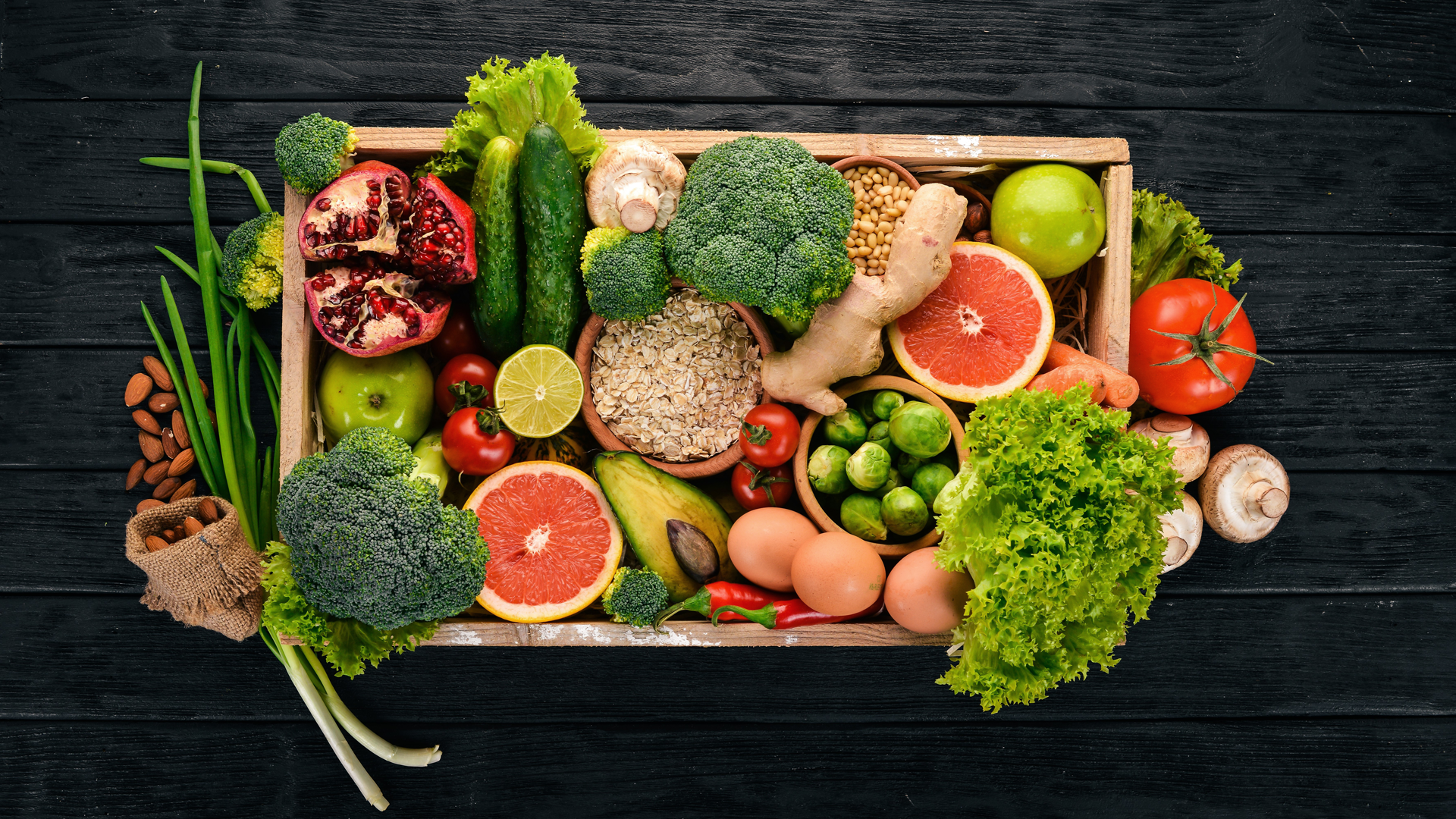Sustainability is a hot topic right now, including in catering. In fact, the catering industry encompasses a particularly wide range of areas where sustainable choices can be made – from the purchase of goods to food presentation.
In this magazine article, we’ll share some tips on how you too can make your catering business more sustainable.
Tip 1: Use regional & seasonal produce
Shorter transport routes produce less CO2, so the environmental impact of your business can be significantly reduced by using regional and seasonal produce. Partnerships with local producers are a win-win: your guests and customers know exactly where their food has come from, while the producers increase their range and visibility. In addition, seasonal and regional cuisine encourages more creativity in cooking and often offers guests new culinary experiences.
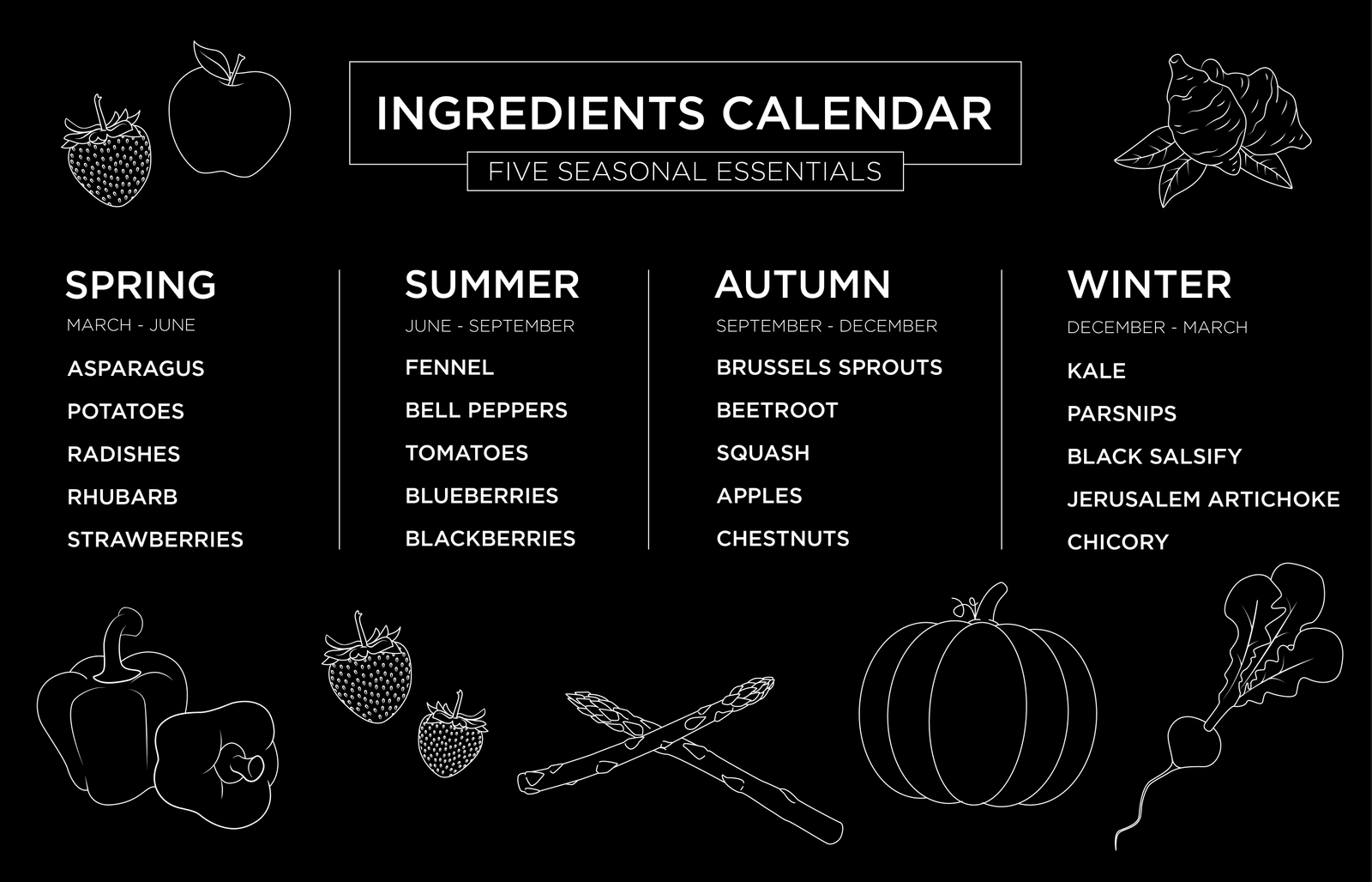
Tip 2: Use fewer disposable products
Disposable products are particularly popular in catering – and it’s easy to see why: they offer a practical, hygienic and simple solution. But they also cause huge amounts of waste. This can be avoided by switching to reusable alternatives. By the way, making the switch now is simply getting ahead of the curve, as from 1 January 2023, caterers, delivery services and restaurants will also be obliged to offer reusable containers as an alternative to disposable ones. In the long run, this change will carry financial and well as environmental benefits. Here are a few of our products that are suitable for catering:
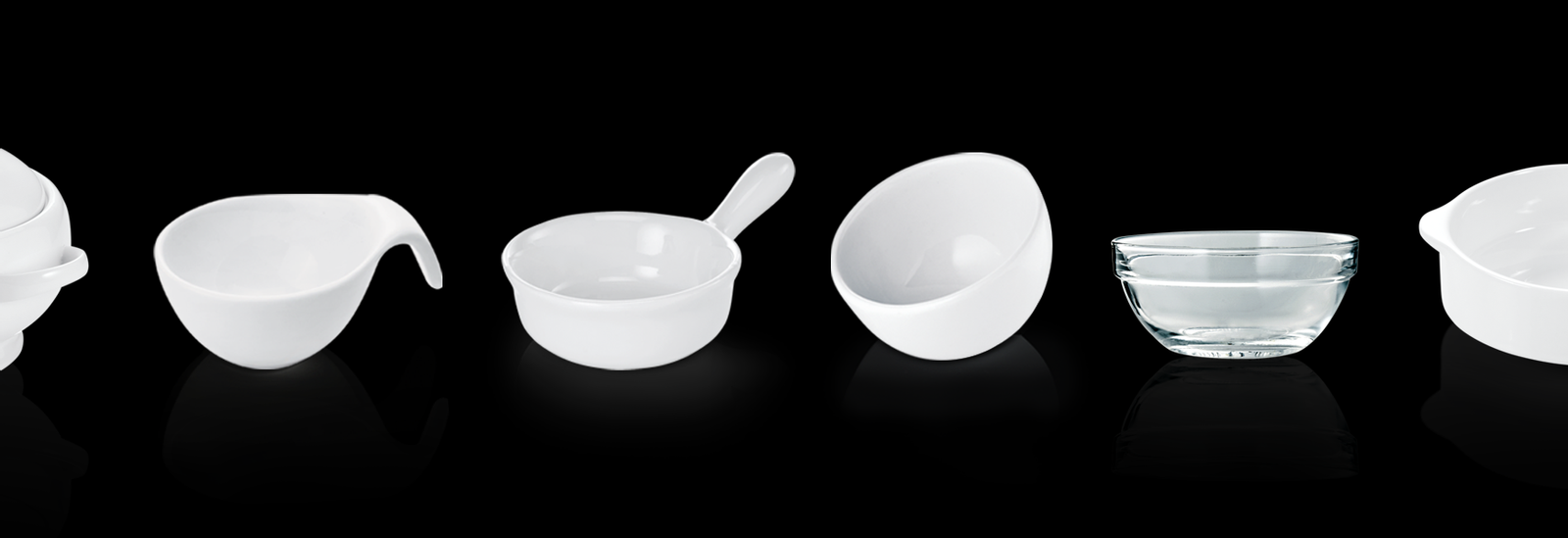
You can find our full product range in our catalogue.
Tip 3: Offer vegetarian and vegan options
The production of meat and dairy products alone is responsible for at least 14.5 percent of global greenhouse gases.* So the easiest way to make your catering business more sustainable is to offer plant-based dishes. This doesn’t necessarily mean switching to meat substitutes made with soy, seitan or pea protein; you can create an excellent catering menu from dishes that just happen to be vegan. In 2021, for example, our chef Bassim showed us how to make vegan hot dogs with carrot sausages – you can find the video here.
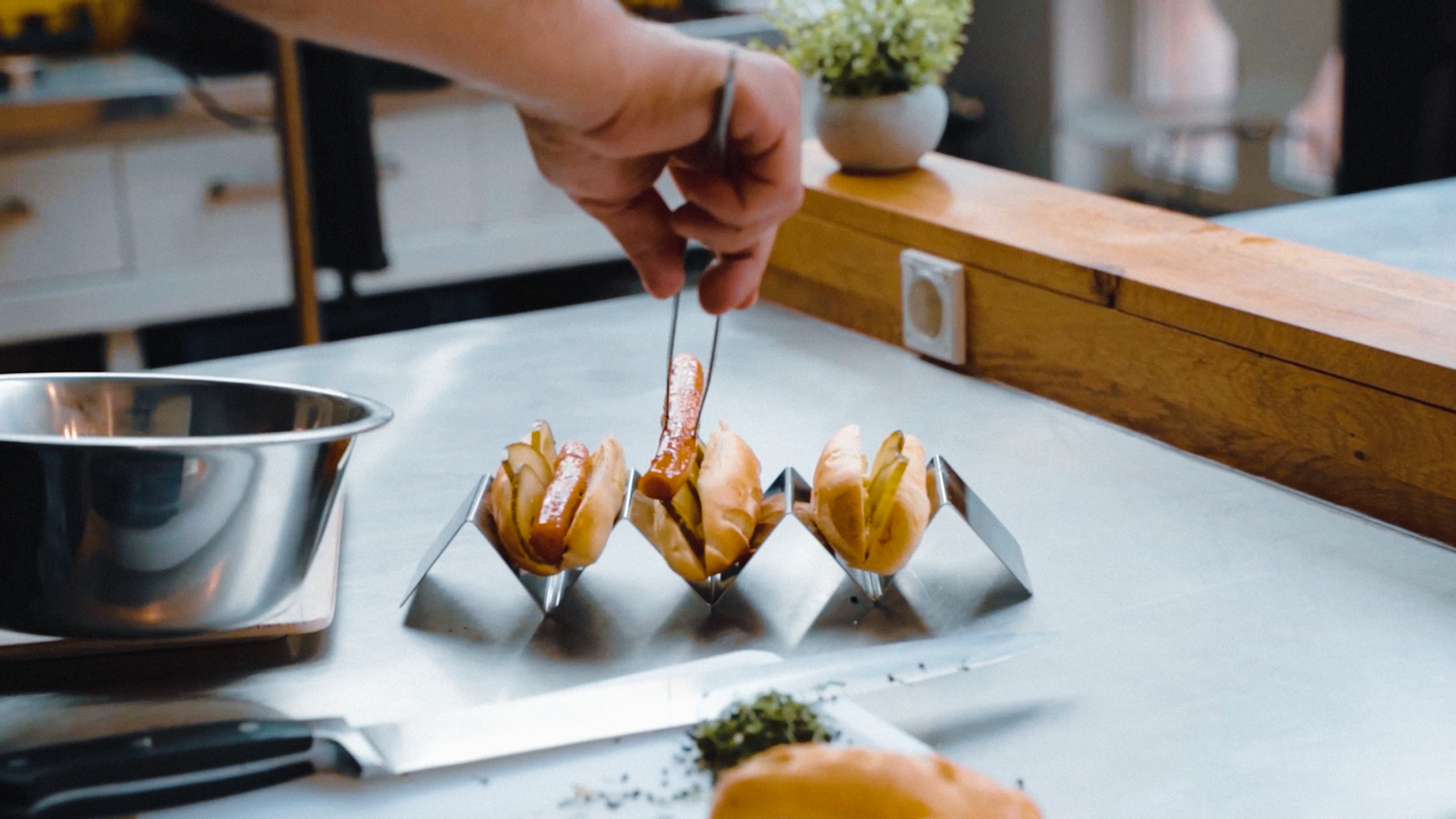
If you don’t want to cut out meat and dairy products entirely, partner up with organic producers in your area. This will enable you to better understand and check the living conditions of the animals and the quality of the products.
Tip 4: Shop plastic free
In 2022, plastic particles were detected in human blood for the first time – alarming proof that it is high time to act. Plastic not only poses a threat to human health, but also to the environment. By now, a range of wholesalers exist that specialise in environmentally friendly, plastic-free goods. Ask around in your area to see if anything similar exists or talk to your current retailers about possible changes.
When you go shopping yourself, steer clear of plastic bags and opt for reusable bags, boxes or containers instead. Avoiding products with palm oil or choosing goods with an ecolabel will also help to protect the environment.
Want to read more on the topic? In this magazine article, our Head of Logistics Tom reveals what we are doing to ship our products to you in a way that is more sustainable and uses less plastic – now and in the future.
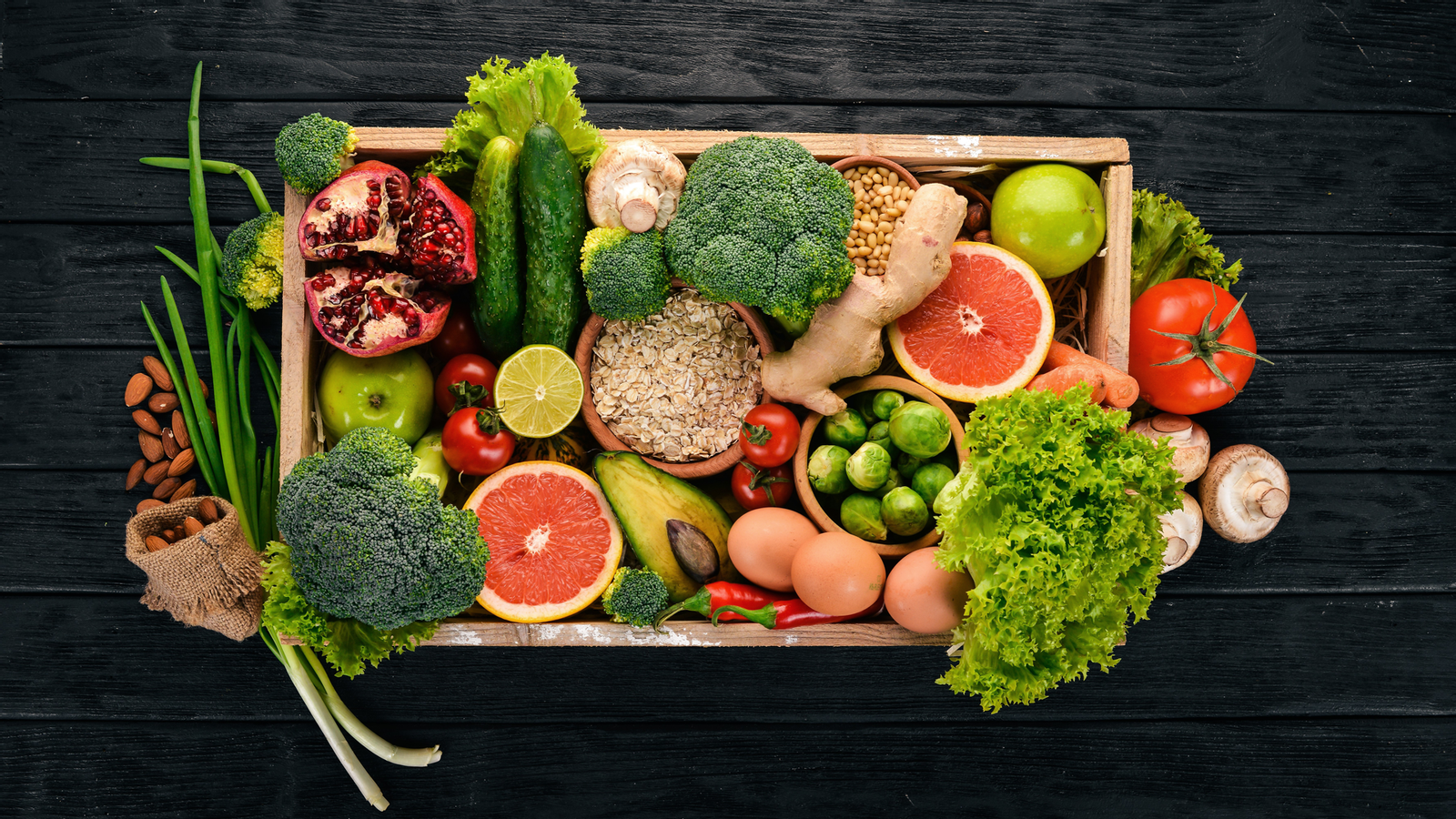
Tip 5: Plan ahead
Planning ahead and giving competent advice to your customers also helps to reduce your environmental impact. How much of which product do you need to buy when? Good organisation can prevent food waste and save energy – because if you use the produce immediately, you don’t have as much that needs to be frozen or refrigerated.
In early 2022, we and our chef Bassim came up with an idea for a particularly sustainable dish with zero food waste – a club sandwich that makes use of the entirety of a carrot: from root to leaf. Wondering what we created with the carrot tops and the peel? Check out the video on our Instagram channel here.
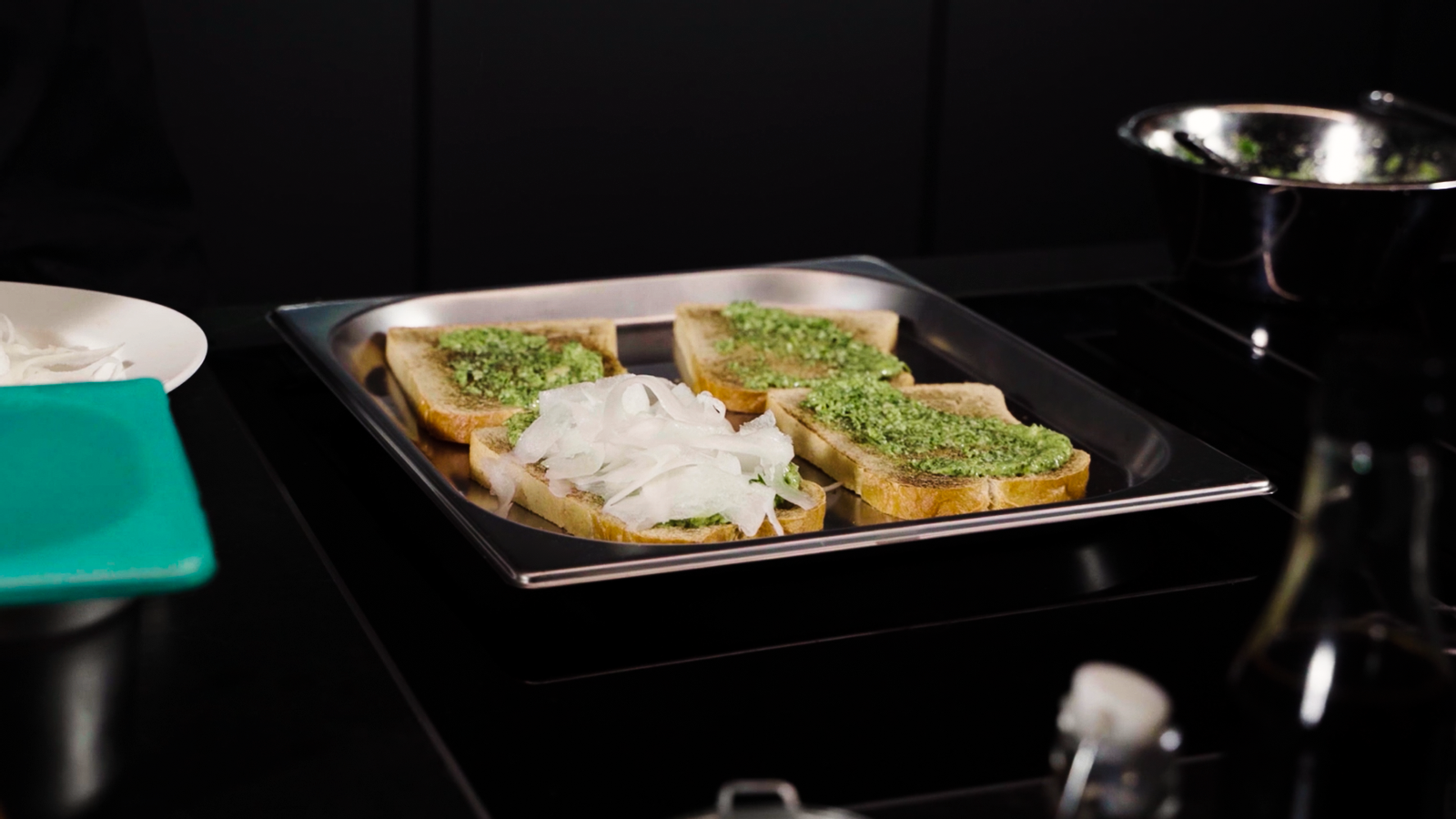
By the way: using modern, energy-efficient appliances can help you save a lot of electricity with food prep – and thus help protect the environment.
Do you have any more tips on the topic of sustainability in catering? We’d love to hear them! You can get in touch via Linkedin or Instagram.

